calsfoundation@cals.org
Lake Nixon
Lake Nixon is a 232-acre tract in southwestern Little Rock (Pulaski County) that includes a thirty-four-acre lake. It is owned and operated as a day camp/recreation facility by Second Baptist Church in downtown Little Rock. The camp has its roots in a landmark 1969 Supreme Court decision. It was listed on the National Register of Historic Places on June 5, 2017.
After the Civil Rights Act of 1964, which banned segregation in public places and employment discrimination on the basis of race, religion, sex, or national origin, proprietors nationwide began trying to circumvent the law by creating segregated private clubs, particularly in recreational settings. Whites could join those clubs by paying a nominal fee, while African Americans were excluded. Oscar Nixon had established one of these exclusive clubs at Lake Nixon, offering swimming, boating, miniature golf, and dancing, as well as a snack bar. The membership fee for the all-white facility was twenty-five cents.
After two African-American women were denied access to the lake in 1966, the segregationist element of the enterprise was challenged in court. The case eventually reached the U.S. Supreme Court as a test case for the continuation of such clubs nationwide. By a 7–1 vote in the case Daniel v. Paul, heard on June 2, 1969, the Court held that Lake Nixon and hundreds of other facilities and recreation areas nationwide could not practice racial segregation. Writing for the majority, Justice William Brennan Jr. claimed that Lake Nixon, in practicality, was not a private club. He said, “It is simply a business operated for a profit with none of the attributes of self-government and member-ownership traditionally associated with private clubs.” Since white people were routinely admitted, and black people excluded, Brennan said the “membership device seems no more than a subterfuge” designed to avoid being covered under the 1964 Civil Rights Act.
After the ruling, Euell Paul took over the property from Nixon. Meanwhile, Dale Cowling, pastor of Second Baptist Church at the time, envisioned a camp ministry where families could spend their time in a relaxing, inspiring, and informative atmosphere, one that would expose all ages and all backgrounds to the natural beauty of the area. Paul set a price at $215,000. Cowling agreed to that price with the following stipulations: nothing down and $10,000 each October for ten years at no interest, with the remaining balance at the current rate of interest at the time Paul signed the contract. Paul called it “the most ridiculous excuse for a business deal I have ever heard.” But he called Cowling the next day, saying he could not sleep the night before and was ready to make the deal.
Second Baptist began using the property for campouts, retreats, public swimming, adult recreation, and special church and community events. The focal point of the ministry was the creation of a summer day camp that began hosting hundreds of children each summer and was voted Little Rock’s Best Day Camp in 2014 and 2015.
Also that year, the church established a master plan that included a lodge, as well as recreation and educational opportunities related to the outdoor environment and nature activities for school groups, businesses, and other organizations.
For additional information:
“Lake Nixon.” National Register of Historic Places registration form. On file at Arkansas Historic Preservation Program, Little Rock, Arkansas. Online at http://www.arkansaspreservation.com/National-Register-Listings/PDF/PU10111_nr.pdf (accessed May 10, 2018).
Lake Nixon Outdoor Center. Second Baptist Church. http://www.2bclr.com/lakenixon/ (accessed May 10, 2018).
“Racial Segregation by ‘Private Clubs’ Is Declared Illegal.” Arkansas Gazette, June 3, 1969, p. 1A.
“Sale of Lake Finally Told to Justices.” Arkansas Gazette, March 29, 1969, p. 1B.
Chris Ellis
Second Baptist Church
 Divergent Prosperity and the Arc of Reform, 1968–2022
Divergent Prosperity and the Arc of Reform, 1968–2022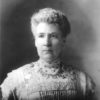 Historic Preservation
Historic Preservation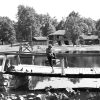 Recreation and Sports
Recreation and Sports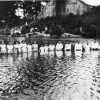 Religion
Religion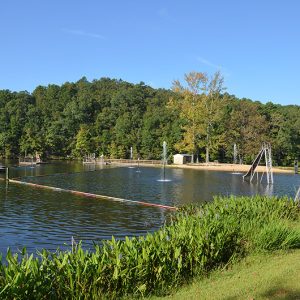 Lake Nixon
Lake Nixon 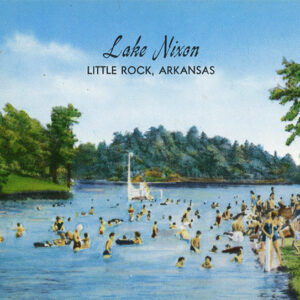 Lake Nixon
Lake Nixon 




Comments
No comments on this entry yet.